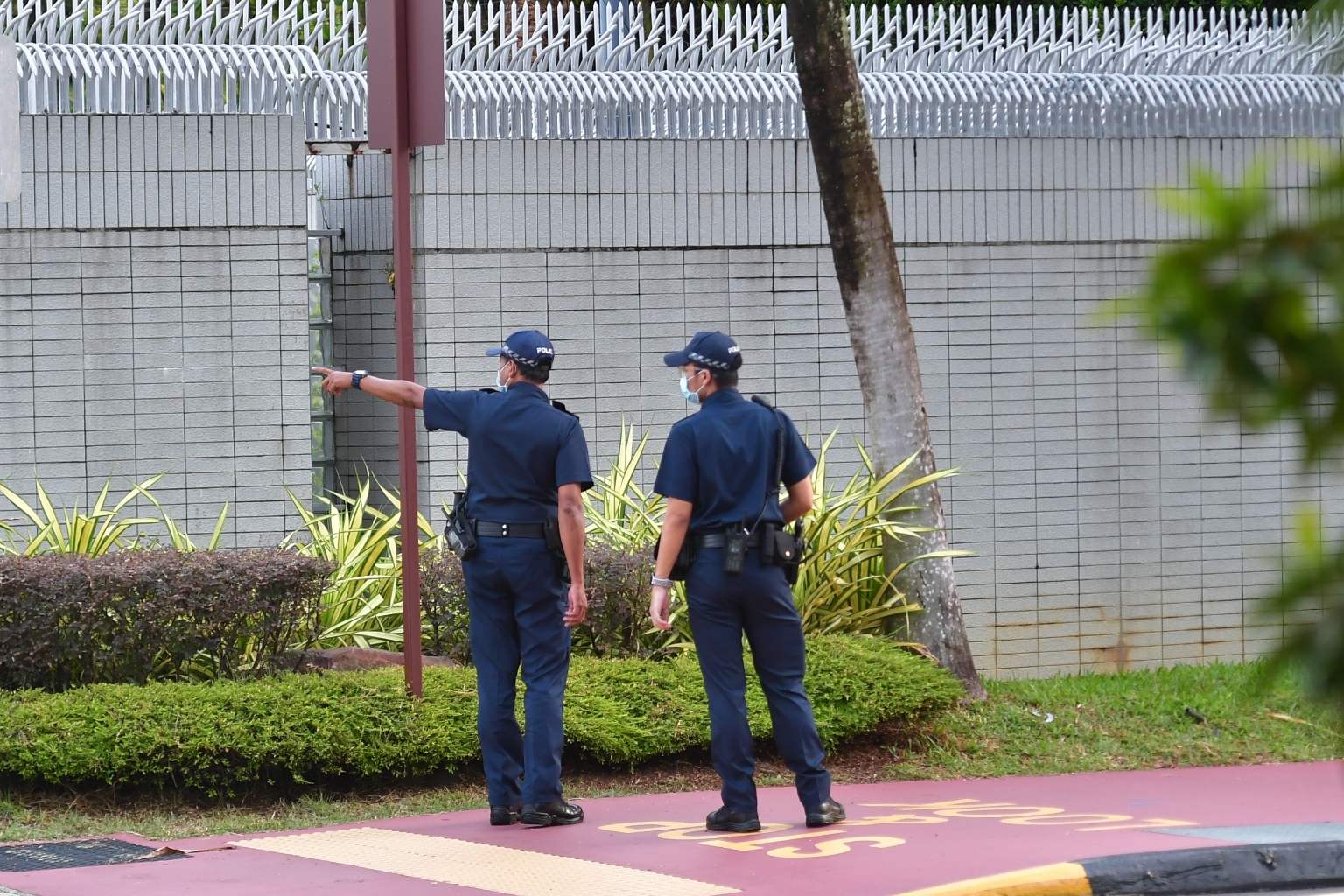DNA database to be expanded, with collection allowed for less serious crimes
Sign up now: Get ST's newsletters delivered to your inbox

The authorities in Singapore will have a bigger DNA database with which to compare samples from crime scenes.
ST PHOTO: DESMOND WEE
Follow topic:
SINGAPORE - A new law to expand the database of DNA collected from people accused of crimes would allow those who have had a previous conviction to be identified much more quickly should they reoffend.
Speaking at a debate on the Registration of Criminals (Amendment) Bill on Monday, Minister of State for Home Affairs Sun Xueling said statistics showed that about one in three individuals convicted of a registrable crime between 2017 and 2021 had been convicted of a non-registrable crime previously.
Registrable crimes are serious offences such as murder, molest and robbery which lead to a criminal record for convicted individuals.
Non-registrable crimes include eligible crimes, such as voluntarily causing hurt, unlawful stalking and affray. Eligible crimes are imprisonable and non-compoundable, which means offenders do not have the option of settling the case out of court by paying compensation in lieu of punishment and a criminal record.
Ms Sun added: "If we had been able to collect DNA and identifying information from these individuals when they were convicted of a non-registrable crime, we might have been able to identify them a lot more swiftly when they later reoffended and committed the registrable crime."
The Bill, which was later passed, will provide the authorities with a bigger DNA database with which to compare samples from crime scenes.
Police will be able to collect DNA, such as blood samples, saliva and hair follicles, from individuals involved in a wider scope of crimes, including mischief, obscene acts and drink driving.
Ms Sun noted that other countries collect DNA information for a far broader scope of offences. South Australia, she said, collects it for all imprisonable offences, while England collects it for both imprisonable and some non-imprisonable offences.
Responding to a question from Mr Melvin Yong (Radin Mas) on how the revised DNA collection regime would compare with that of other countries, Ms Sun said: "We have surveyed the approach in foreign jurisdictions. We did not just adopt wholesale the practices of other countries, but where appropriate, adapted them to suit our context."
Several MPs, including Leader of the Opposition Pritam Singh, also asked about the security measures in place to safeguard the information.
Mr Singh, who is also MP for Aljunied GRC, said: "The Bill envisages the surrender of private information for which the highest levels of security and access must be assured by the Government.
"Just a few years ago, in 2018, the personal information of some 1.5 million Singaporeans was hacked in the SingHealth cyber-security breach, the worst publicly known cyber-security incident in Singapore's history."
In the incident, hackers infiltrated the databases of SingHealth, the largest group of healthcare institutions here. The personal particulars of 1.5 million patients, including the outpatient prescriptions of Prime Minister Lee Hsien Loong and a few ministers, were stolen.
In response, Ms Sun said there are practices in place to protect the DNA and identifying information stored in the database. She noted that all access to the information is logged and recorded through an audit trail to detect any data modification.
"There is also a framework in place to manage any government data incidents. In the event of a data breach, appropriate remedial actions will be taken in accordance with standard operating procedures and workflows," she added.
Mr Louis Ng (Nee Soon GRC) raised a concern that an officer may use force to take non-invasive body samples, such as cheek swabs, from an accused individual if he refuses to consent to it.
"I think we can all agree that having a body sample forcibly taken from us can be intrusive, distressing and traumatic," he said.
In response, Ms Sun said a guilty party may not consent to provide data for fear of being incriminated and noted that time is an important factor when solving a crime.
"In deciding whether to use reasonable force, police officers will assess the facts and circumstances of each case, including the urgency of the situation. If individuals feel that the force used was disproportionate, they can provide feedback to the Ministry of Home Affairs or lodge a police report," she said, adding that the ministry will investigate the complaint and take action, where warranted.
Other changes in the Act:
- It will be made clear in the Bill that it is an offence for accused individuals who refuse to provide blood samples without a reasonable excuse. They may be fined up to $1,000, jailed for up to one month, or both.
- Any individual can provide his DNA or non-DNA identifying information voluntarily to the police. Volunteers can request that the police delete their information at any time.
- A reviewing tribunal comprising a district judge or magistrate will be set up to hear appeals against a decision by the police to reject an application for data removal.
- DNA information can be used to identify a dead individual, and for any investigations and inquiries into a death.
- Legislative safeguards will be in place to prevent loss, modification and unauthorised access to any information recorded in various databases.
Correction note: This story has been edited for clarity.

